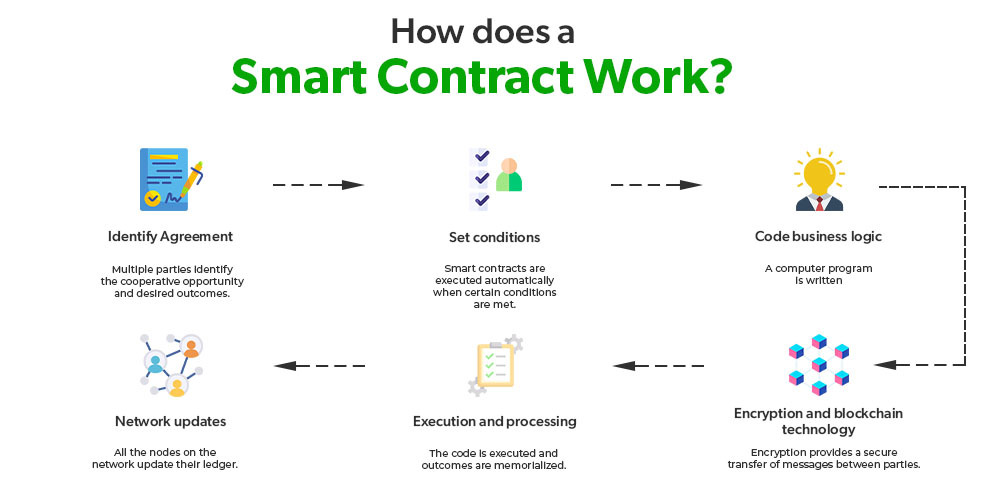Smart Contracts
What are Smart Contracts?
Definition:
Smart contracts are self-executing contracts with the terms of the agreement directly written into code. Utilizing blockchain technology, smart contracts automate and enforce the execution of contractual obligations without the need for intermediaries. These digital contracts facilitate trust and transparency in various domains, enabling secure and decentralized transactions.
Analogy:
Think of smart contracts as digital escrow agents. Similar to how an escrow service ensures that conditions are met before transferring funds in a real estate transaction, smart contracts automatically execute and enforce agreements, removing the need for intermediaries and enhancing the efficiency and security of transactions.
Further Description:
Smart contracts cover a spectrum of functionalities, including:
Automation of Transactions: Automatically execute predefined actions when specific conditions outlined in the contract are met, ensuring a trustless and tamper-resistant execution.
Decentralized Agreement: Operate on blockchain networks, providing a decentralized and distributed ledger where all participants can verify and validate the contract’s execution.
Conditional Logic: Incorporate conditional statements and logic within the code, allowing for dynamic and flexible contract execution based on changing circumstances.
Immutable and Transparent: Once deployed on a blockchain, smart contracts are immutable, meaning their code cannot be altered. This transparency enhances trust and security.
Why are Smart Contracts Important?
Trustless Transactions: Eliminate the need for trust in counterparties, as the code and blockchain technology ensure the execution of terms without reliance on intermediaries.
Efficiency and Speed: Streamline and automate processes, reducing the time and complexity traditionally associated with contract execution.
Reduced Costs: Minimize the costs associated with intermediaries, paperwork, and potential disputes, leading to more cost-effective transactions.
Security: Blockchain’s cryptographic features and decentralized nature enhance the security of smart contracts, making them resistant to fraud and tampering.
Examples and Usage:
Ethereum Smart Contracts: Ethereum’s blockchain is a popular platform for deploying smart contracts, enabling a wide range of decentralized applications (DApps).
Supply Chain Management: Automate and secure various aspects of the supply chain, such as tracking goods, verifying authenticity, and triggering payments upon delivery.
Financial Transactions: Facilitate peer-to-peer financial transactions, loans, or insurance claims without the need for traditional financial institutions.
Key Takeaways:
- Smart contracts are self-executing digital contracts with terms written in code.
- They leverage blockchain technology for decentralization, transparency, and security.
- Smart contracts automate transactions, enhance efficiency, reduce costs, and increase security.
- Examples include Ethereum-based contracts, supply chain automation, and financial transactions.
Table of Contents





